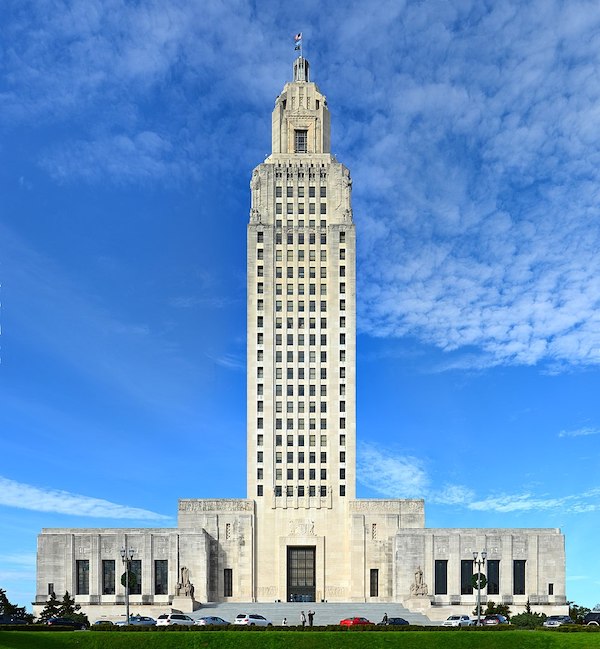Geneva "Neil" Champagne Bourg
November 27, 2006
A LESSON IN EXCELLENCE
November 29, 2006Santa hat firmly planted on her head, Gov. Kathleen Blanco hopes lawmakers will help her dole out early Christmas presents.
With an $827 million surplus from last year and an expected $800 million or so jump in state income this year, Blanco is pushing an array of ideas for a December special session of the Legislature: pay raises, road repairs, tax breaks.
She also wants to send homeowners an insurance rebate check to end the holidays and to start the 2007 statewide election year n when she faces what is expected to be a tough re-election battle.
The same day workers started to hang Christmas wreaths at the state Capitol, Blanco described her goals for a Dec. 8-17 special session, hoping the Legislature will agree to spend an estimated $1.6 billion for businesses, homeowners, moms and dads, educators and others.
“Mrs. Claus is back in Baton Rouge,” said Rep. Jim Tucker, R-Terrytown, chairman of the House Republican Caucus.
Complaints started quickly that Blanco was trying to pave her way to re-election by spending the state’s windfall on items that would garner praise n and possibly campaign help n from groups that carry some political sway, like teachers and law enforcement.
Blanco said she simply wanted to prioritize state spending on core need areas in Louisiana, such as transportation, education and economic development.
She’s pushing child tax credits for families, a quickening of two business tax breaks, road improvements, building repairs, retirement debt payments and pay raises for an array of state-funded workers. On Blanco’s list are salary boosts for public school teachers, school support workers, university faculty, prison guards, police, firefighters and state employees.
The broad agenda could be too complex and too much for lawmakers to tackle in 10 days, said Barry Erwin, president of the nonpartisan Council for a Better Louisiana.
“My preference would be that with some of these issues, that we would take a step back, hold our breath and figure out a strategic way to spend $1.6 billion, and I don’t think 10 days right at the holidays is the best way to accomplish that,” Erwin said.
The state’s coffers are bulging on the strength of high oil and gas prices and state taxes generated by the post-hurricane recovery, as people replace flooded homes, cars and furniture. The state’s revenue estimating panel is expected to recognize the new dollars in December. Then they can be spent by the Legislature.
“The reality here is the money’s just coming in like a firehose,” said Greg Albrecht, an economist for the Legislative Fiscal Office.
Legislative budget debates typically stretch over weeks and months, not days, raising questions about how much Blanco and the Legislature can do in the special session.
Heading home to constituents in an election year with promises of improved roads, better-paid police and insurance relief could grease the wheels of the legislative process, however.
“I don’t think you can find a better year than an election year to give out pay raises and tax breaks, but I think we need to look at what is the most strategic way to spend those dollars,” Erwin said.
The idea of a special session initially began by lawmakers pushing for insurance relief, mainly to help cover the debts of the Louisiana Citizens Property Insurance Corp., the state-run insurance company of last resort for homeowners.
Citizens borrowed $1 billion to cover claims after hurricanes Katrina and Rita and is repaying that debt by passing on fees to private insurers, who in turn are charging their customers rate hikes to cover those fees.
Lawmakers wanted to bail out Citizens to stop the debt costs from being pushed onto all insured homeowners around the state.
But with hundreds of millions of dollars on the table, Blanco’s agenda mushroomed to a gift-giving special session. The question is will the beneficiaries remember or care when they go to the voting booth in a little less than a year?
Melinda Deslatte covers the state Capitol for The Associated Press.









